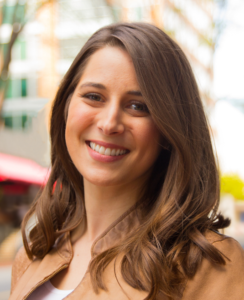By trying to please everyone with their COVID-19 response plan, Loudoun County Public Schools are angering most parents.
When the LCPS school board voted last week to move forward with a hybrid model for schooling in the fall, it disappointed the majority of parents who voted to keep their children in school full-time. Frustrated parents are concerned their students will fall behind academically, miss out on the joy of sports and extracurriculars, and may be forced to wear face masks. They’re also stressed about juggling their full- time jobs while supervising their children’s Zoom sessions on distance learning days.
With so much uncertainty around how the school system will implement the CDC’s guidelines for schools, homeschooling suddenly seems like the best option for many Loudoun families. Home-based education offers the flexibility that families need during this time to fit their work schedules and unique health and educational needs.
Dissatisfied parents all across the U.S. are turning to homeschooling. Government websites are currently overwhelmed with the number of submissions of notices of intent to establish a home school. Senior Counsel for the Home School Legal Defense based in Purcellville, Michael P. Donnelly predicts 8.5 millions students will switch from traditional schooling to homeschooling in the fall. That means for every one child who is currently homeschooled, there will soon be five new homeschooled children. This could very well be the largest shift towards homeschooling our nation has seen in centuries.
Loudoun County is no exception to the national trend. Much of the homeschooling switchover conversation is taking place on private Facebook groups where parents are asking about local co-ops, curricula, and support from other parents who are also unexpectedly taking the homeschooling leap. Local homeschooling Facebook groups are rumored to have an exponential increase in requests to join. With so many parents now considering homeschooling, LCPS and public school systems across the nation should expect an exodus of students from their schools in the fall.
It shouldn’t be a surprise to the school board that interest in homeschooling is on the rise. Many of the learning and socialization benefits that take place in a traditional classroom setting are expected to simply disappear in the fall. For education, evidence shows online learning is not as effective as in-person and hands-on learning. Kids thrive in a homeschooling environment that gives them the opportunity to spend more time outside and learn in their own way, at their own speed. On the socialization front, students would not be permitted to sit near their friends on the bus, work at the same table for class projects, congregate closer than six feet in the halls during breaks, play sports, or dress up for the homecoming dance under the CDC’s guidelines.
But through homeschooling groups and voluntary co-ops, parents would be free to come together and make their own rules. If a group of families are comfortable getting together regularly for class, sports, and extracurriculars, they may have an opportunity to provide their children with a richer educational and social experience through homeschooling than the public school system this fall. And of course, families who prefer to self-isolate or only gather with others outside six feet apart for learning activities have that option as well. Parents value the customization and control of home-based education now more than ever.
Of course, homeschooling will not be an option for all families, especially those with both parents required to work outside the home. But even families with two working parents may find it easier to homeschool around their work schedule rather than the school’s distance learning schedule.
The good news for parents turning to homeschooling is that it will only get easier as popularity rises. Many states have already loosened their homeschooling requirements to accommodate the current COVID-19 situation. And with a surge in interest will come a surge in options: more co-ops, more and better curriculum, and more support from neighbors and friends who are all in it together.
Homeschooling has long been viewed as a privilege at best and a sure way to turn your kids into social outcasts at worst. But perhaps we should embrace the homeschooling revival of 2020. Home-based education has, after all, been the norm for nearly all of human history. And today, in a COVID-19 America, homeschooling offers families the flexibility that public schools do not.
For a “new normal,” maybe homeschooling isn’t so bad after all.
Elise Daniel is the Content Director at Bellwether Communications and mom of two boys in Purcellville.


Leave a Reply
You must be logged in to post a comment.